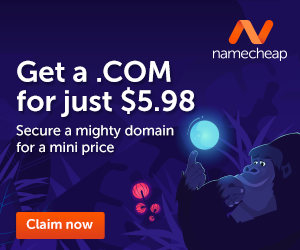What is a Content Management System?
A Content Management System (CMS) is a software application that allows users to create, manage, and modify digital content without the need for specialized technical knowledge. In today’s fast-paced digital world, a CMS has become an essential tool for businesses of all sizes. It streamlines the process of website management, making it easier for teams to collaborate, update content, and maintain a consistent online presence.
Key features and benefits of using a CMS include:
- User-friendly interface for content creation and editing
- Multi-user collaboration capabilities
- Built-in SEO tools
- Customizable templates and themes
- Plugin and extension support for added functionality
Over the years, CMSs have evolved significantly. They’ve transitioned from simple text editors to sophisticated platforms that support multimedia content, e-commerce functionality, and even artificial intelligence-driven features. This evolution has made CMSs more powerful and versatile than ever before, catering to the diverse needs of modern businesses and content creators.
WordPress: The Reigning Champion
WordPress continues to dominate the CMS market in 2024, powering over 40% of all websites on the internet. Its popularity stems from its versatility, user-friendly interface, and vast ecosystem of themes and plugins. WordPress caters to a wide range of users, from bloggers and small businesses to large corporations and e-commerce sites.
Key features and advantages of WordPress:
- Extensive library of themes and plugins
- SEO-friendly structure
- Regular updates and strong security measures
- Large and supportive community
In 2024, WordPress has further improved its Gutenberg block editor, introduced more AI-powered features for content creation and site optimization, and enhanced its performance for better page load speeds. These updates have solidified WordPress’s position as the go-to CMS for businesses of all sizes.
Shopify: E-commerce Powerhouse
Shopify has established itself as the leading e-commerce-focused CMS, providing a comprehensive solution for online retailers. It offers a user-friendly interface coupled with powerful features designed specifically for selling products online. Shopify’s all-in-one platform includes everything from inventory management to secure payment processing.
Standout features for online stores:
- Built-in payment gateway
- Inventory and order management tools
- Customizable storefront themes
- Mobile-responsive designs
Shopify’s pricing plans cater to businesses of all sizes, from small startups to large enterprises. The platform’s scalability ensures that it can grow with your business, offering advanced features and increased capacity as needed. Additionally, Shopify’s robust app store and API allow for seamless integration with various third-party tools and services, enhancing its functionality and adaptability to specific business needs.
Wix: User-Friendly Website Builder
Wix has gained popularity as a user-friendly website builder that empowers individuals and small businesses to create professional-looking websites without any coding knowledge. Its intuitive drag-and-drop interface makes it easy for anyone to design and customize their site according to their preferences.
AI-powered design capabilities:
- Wix ADI (Artificial Design Intelligence)
- Smart layout suggestions
- Automated content creation tools
Wix is particularly suitable for small businesses, freelancers, and creative professionals who want to showcase their work or services online. Its diverse template library covers various industries, from restaurants and fashion boutiques to photography portfolios and personal blogs. While Wix offers a free plan with basic features, its premium plans provide additional functionality, removal of Wix branding, and the ability to connect a custom domain name.
Drupal: Enterprise-Level Content Management
Drupal stands out as a powerful, open-source CMS that caters to the complex needs of large organizations and enterprises. Known for its robustness and flexibility, Drupal provides a solid foundation for building sophisticated, content-rich websites and web applications.
Security features and scalability options:
- Regular security updates and patches
- Role-based access control
- Scalable architecture for high-traffic sites
- Multi-site management capabilities
One of Drupal’s greatest strengths lies in its extensive module ecosystem, which allows for virtually unlimited customization possibilities. This makes it an ideal choice for organizations with specific requirements or those needing to integrate complex systems. Government agencies, educational institutions, and large corporations often choose Drupal for its ability to handle vast amounts of content and users while maintaining high performance and security standards.
Joomla: The Versatile Contender
Joomla positions itself as a versatile CMS that strikes a balance between the user-friendliness of WordPress and the complexity of Drupal. It offers a robust set of features out of the box, making it suitable for a wide range of website types, from simple blogs to complex web applications.
Unique advantages of Joomla:
- Built-in multilingual support
- Flexible content structuring
- Advanced user management
- Extensive extension directory
In 2024, Joomla has made significant strides in improving its user interface and streamlining the content creation process. The platform now offers enhanced SEO tools, improved performance optimization, and better integration with third-party services. While it may have a steeper learning curve compared to some other CMSs, Joomla’s flexibility and powerful features make it an attractive option for businesses and organizations looking for a customizable solution.
Squarespace: Design-Focused Website Builder
Squarespace has carved out a niche as a design-centric website builder, known for its sleek, modern templates and intuitive interface. It caters to users who prioritize aesthetics and want a professional-looking website without the need for extensive customization or coding.
E-commerce capabilities and integrations:
- Built-in shopping cart functionality
- Integration with popular payment gateways
- Social media selling tools
- Inventory management features
Squarespace is particularly popular among creative professionals, small businesses, and lifestyle brands. Its all-in-one platform includes hosting, domain registration, and email marketing tools, making it a convenient choice for those who want a hassle-free website solution. While Squarespace offers less flexibility in terms of customization compared to some other CMSs, its focus on design and ease of use makes it an attractive option for many users.
Ghost: Streamlined Blogging Platform
Ghost has emerged as a modern, streamlined publishing platform that caters specifically to bloggers, journalists, and content creators. It offers a clean, distraction-free writing environment with a focus on performance and simplicity.
Key features for content creators and publishers:
- Markdown editor for efficient writing
- Built-in SEO and social sharing tools
- Native subscription and membership features
- API-first architecture for headless CMS capabilities
Compared to traditional blogging platforms, Ghost offers a more modern and minimalist approach to content management. Its subscription and membership features make it particularly appealing for creators looking to monetize their content. Ghost provides both self-hosted and managed hosting options, giving users flexibility in terms of control and maintenance responsibilities.
Contentful: Headless CMS for the Future
Contentful represents the new wave of headless CMS solutions, offering a content infrastructure that separates content management from content delivery. This approach allows for greater flexibility in how and where content is displayed, making it ideal for businesses with multi-channel content needs.
Benefits of using Contentful for omnichannel content delivery:
- Content reusability across multiple platforms
- Faster content delivery through CDN
- Flexible content modeling
- Developer-friendly API-first approach
Contentful’s API-first approach makes it particularly well-suited for businesses that need to deliver content across various platforms, including websites, mobile apps, IoT devices, and digital signage. Its robust content modeling capabilities allow for complex content structures, while its cloud-native architecture ensures scalability and reliability. Organizations looking for a future-proof content management solution often find Contentful to be a compelling choice.
HubSpot CMS Hub: All-in-One Marketing Solution
HubSpot CMS Hub offers a comprehensive content management solution that integrates seamlessly with HubSpot’s popular marketing, sales, and service tools. This integration provides a unified platform for managing all aspects of a business’s online presence and customer interactions.
Integration with HubSpot’s marketing, sales, and service tools:
- Built-in CRM functionality
- Marketing automation features
- Lead generation and nurturing tools
- Customer service ticket management
One of HubSpot CMS Hub’s standout features is its advanced personalization capabilities, allowing businesses to deliver tailored content experiences based on visitor data and behavior. The platform also offers robust analytics and reporting tools, providing valuable insights into website performance and user engagement. While HubSpot CMS Hub may come with a higher price tag compared to some other options, its all-in-one nature and powerful marketing features make it an attractive choice for businesses focused on growth and customer engagement.
Choosing the right CMS in 2024 is more important than ever, and these top 10 options offer something for everyone. Whether you’re looking for simplicity, power, or specialized features, there’s a perfect fit waiting for you. Remember, the best CMS is the one that aligns with your specific needs and goals. So, what are you waiting for? Take the plunge, explore these amazing platforms, and watch your online presence soar to new heights! Trust me, your future self will thank you for making the right choice today.









Comments (3072)